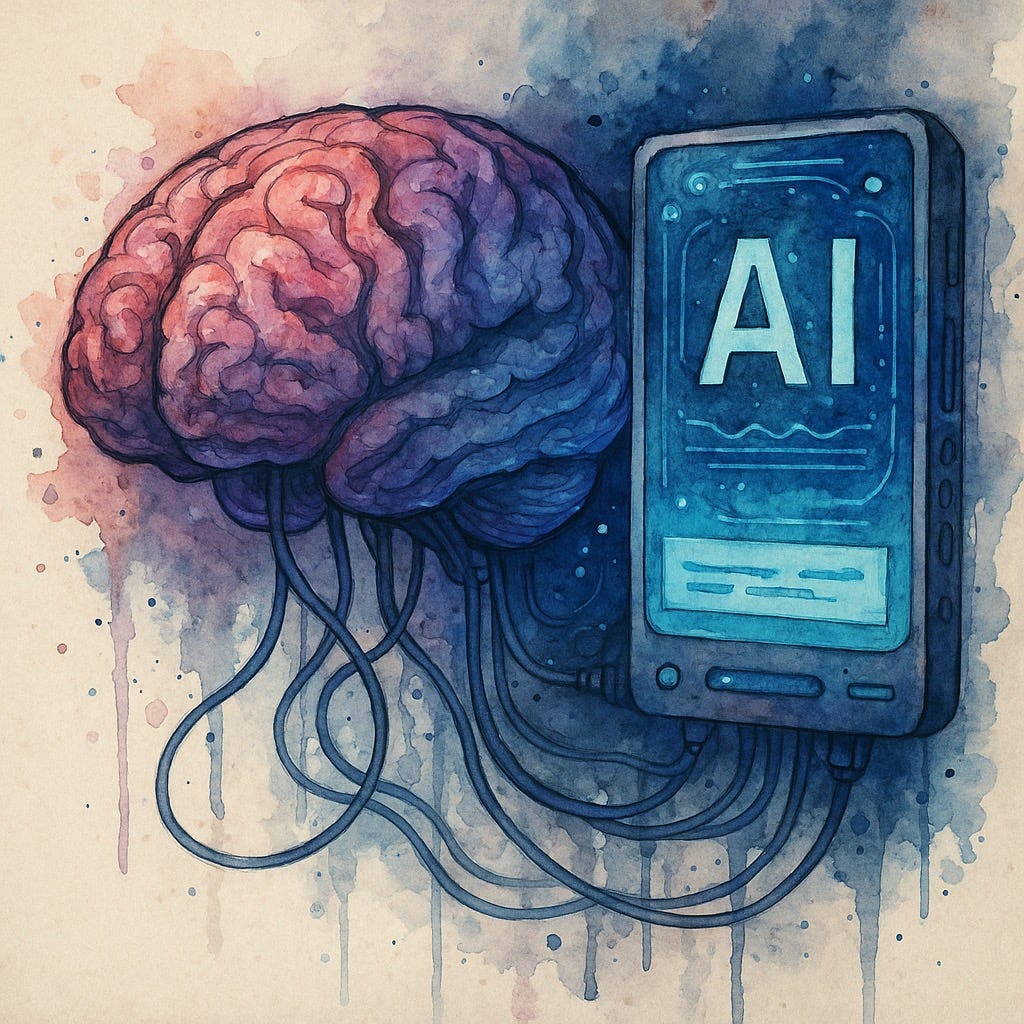MIT Study: Early ChatGPT Use May Dull Brain Activity, Memory, and Creativity (Duh!)
The Breakdown
A new study out of MIT’s Media Lab just raised red flags about how AI might affect the brain… especially young, developing ones.
Researchers observed that subjects who used ChatGPT to write essays showed lower brain engagement, weaker memory recall, and less originality than those who wrote unaided or used Google Search.
Over time they got lazier.
Copy-paste habits took over.
By the third essay, it was more “just give me the answer” than actual thinking.
The paper hasn’t been peer-reviewed yet… but the researchers didn’t want to wait.
Because if the findings are right, the implications for education, learning, and even early-career professionals could be massive.
The Details
The setup: 54 participants (ages 18–39) were divided into three groups.
Brain-only
Google Search
ChatGPT users
Each group was tasked with writing SAT-style essays while wearing EEG headsets that measured brain activity across 32 regions.
The findings:
ChatGPT users had the lowest levels of neural engagement
Their writing grew more repetitive, less original, and increasingly reliant on AI
They exhibited weaker memory, executive control, and attentional focus
Two English teachers called the ChatGPT essays “soulless”
The twist: After several months, participants were asked to rewrite one of their essays, this time without AI.
The ChatGPT group struggled.
They barely remembered what they’d written.
Brainwave activity confirmed what the researchers feared: nothing had stuck.
In contrast:
The brain-only group had the highest engagement and memory recall.
They expressed more satisfaction and curiosity about the task.
The Google Search group also performed well, indicating that the act of searching still activates deep cognitive pathways
Additional irony:
When the paper was published, the team then summarized it online using ChatGPT, which hallucinated false details that were planted intentionally in the original paper.
A full-circle moment of AI missing the point of an AI warning!
Why You Should Care
This isn’t just about students.
It’s about what happens to a generation that outsources its thinking to machines before learning how to think for itself.
The MIT researchers don’t argue we should avoid AI.
They argue we need to rethink how we use it, especially in learning environments.
Because while ChatGPT might help you finish a task faster, it might also leave your brain behind.
Enjoying Artificially 🤖 Intelligent?
Get the latest AI insights, breakdowns, and strategies delivered straight to your inbox.
Subscribe now and stay ahead of the curve.


